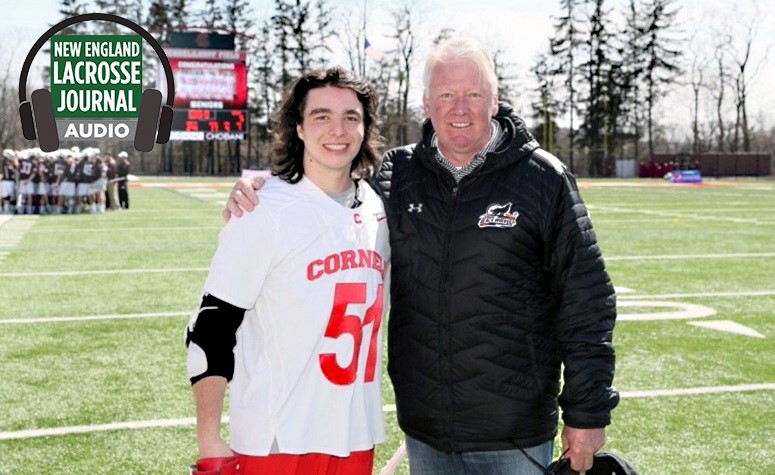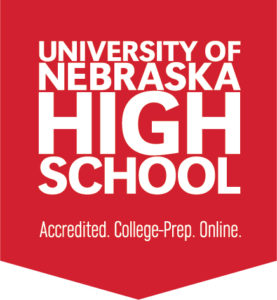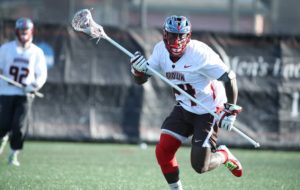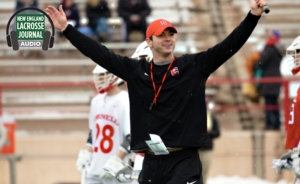
On this week’s episode of New England Lacrosse Journal’s “Chasing The Goal” podcast, hosts Kyle Devitte and Jack Piatelli welcomed Cornell legend and NLL team owner Mike French.
French was part of the Cornell lacrosse team’s most historic run in the 1970s. Teamed with historically impactful players Eamon McEnaneany, Dan McKeasey and Bob Hendrickson, French helped Cornell go undefeated to win the NCAA championship in 1976.
He amassed 104 points that season and is currently 20th all-time in NCAA history in total points.
French went on to play professionally in various incarnations of indoor box leagues before joining the ownership ranks of the Philadelphia Wings and the New England Black Wolves. He is now an ownership partner with the Albany FireWolves and continues to be a fixture in the professional indoor lacrosse scene.




